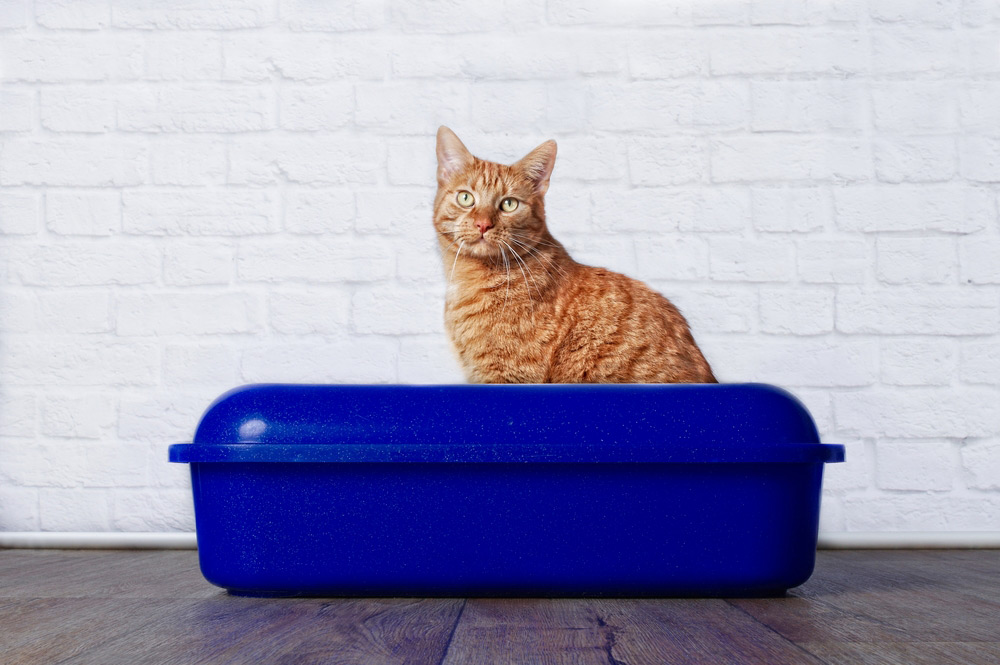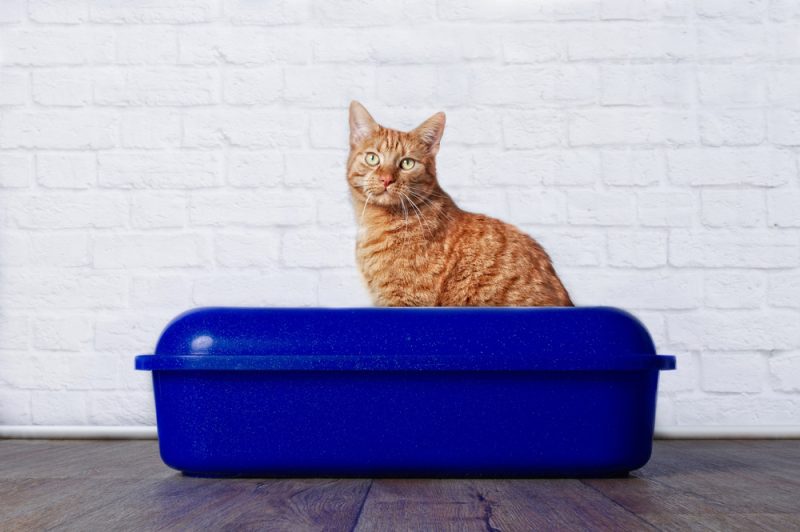Rescue cats can make a wonderful addition to your family, because they are the most in need and often return the favor by being extremely friendly and affectionate toward their new owners. However, they can come with some baggage. Some may have emotional troubles due to their time on the street or in a shelter, and they may also have medical issues that can include chronic diarrhea.
If you recently brought a cat home with this problem, here’s a list of possible causes and their solutions so you and your vet can help get your cat back to normal.
The 8 Possible Causes of Chronic Diarrhea in Rescue Cats
1. Parasitic Infections
Parasitic infections are the most common reason for chronic diarrhea in rescue cats, especially if they have been in environments with poor sanitary conditions or many other cats. Common parasites include roundworms, hookworms, giardia, and coccidia.
What Can You Do About It?
A trip to the vet can help you determine if your cat is suffering from parasites. In most cases, medication will remove them in a few days, which should clear up the diarrhea and make your pet feel better.
2. Tritrichomonas
Tritrichomonas foetus is another parasite that can infest your cat. However, it is often not diagnosed until after many other treatments for chronic diarrhea are performed. Besides diarrhea, your pet might suffer from flatulence, straining to defecate, and blood in the stool.
What Can You Do About It?
Your veterinarian will run several tests that can include a fecal culture, fecal smear, and PCR test to determine if your pet has the Tritrichomonas foetus parasite before administering antibiotics and medication, which can help get your pet back to good health.
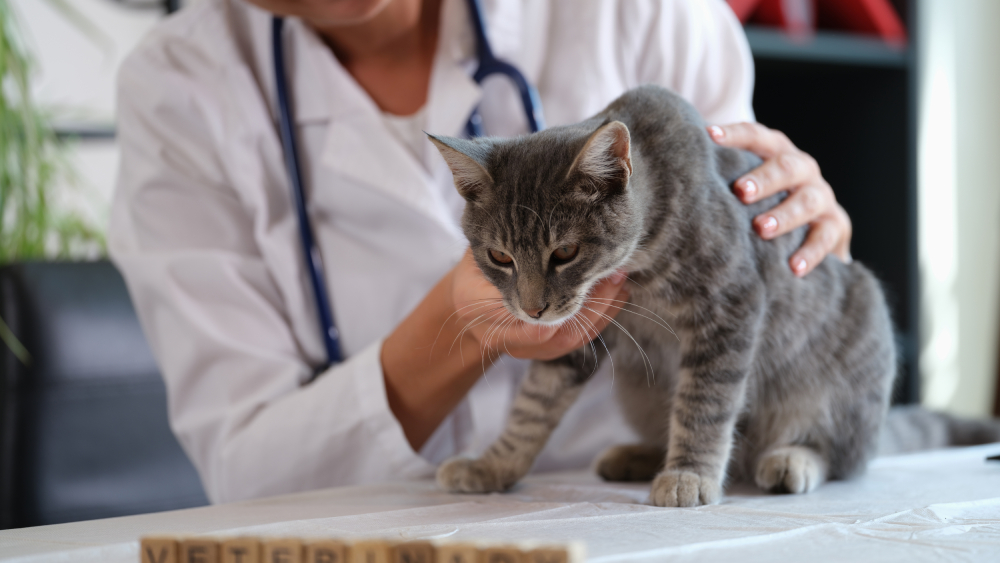
3. Bacterial/Viral Infections
Bacterial or viral infections, which can include feline leukemia virus (FeLV), feline immunodeficiency virus (FIV), and feline coronavirus (FCoV), are common causes of chronic diarrhea in rescue cats. Felines often transmit these infections by engaging in territorial disputes, fighting with other animals when they are outdoors, and even sharing litter boxes. Unfortunately, besides chronic diarrhea, these infections can often lead to other health problems.
What Can You Do About It?
Unfortunately, the best defense against these infections is prevention, as there is no cure for FIV or FeLV. However, with proper care that includes medication, high quality nutrition, a comfortable living area, and plenty of love, affected cats can still live happy lives.
4. Stress
Cats are extremely routine-based animals that like to stay in their territory. They can get stressed out when moving to a new environment, even if it’s a better one, and stress can cause inflammation of the digestive system, leading to frequent diarrhea. It’s also likely that the environment that they were in caused a great deal of stress.
What Can You Do About It?
You can help your cat manage their stress by providing them with a quiet space away from heavy foot traffic and loud noises where they can retreat if they need to. Cat trees and perches can also help, especially if these provide a view of the outside, and freshly rotated toys, along with plenty of playtime with their new owners, can help them feel more at home. Try to establish a routine throughout your day so they will do the same. Provide plenty of positive feedback in the form of treats and praise to help let them know that the environment is friendly.
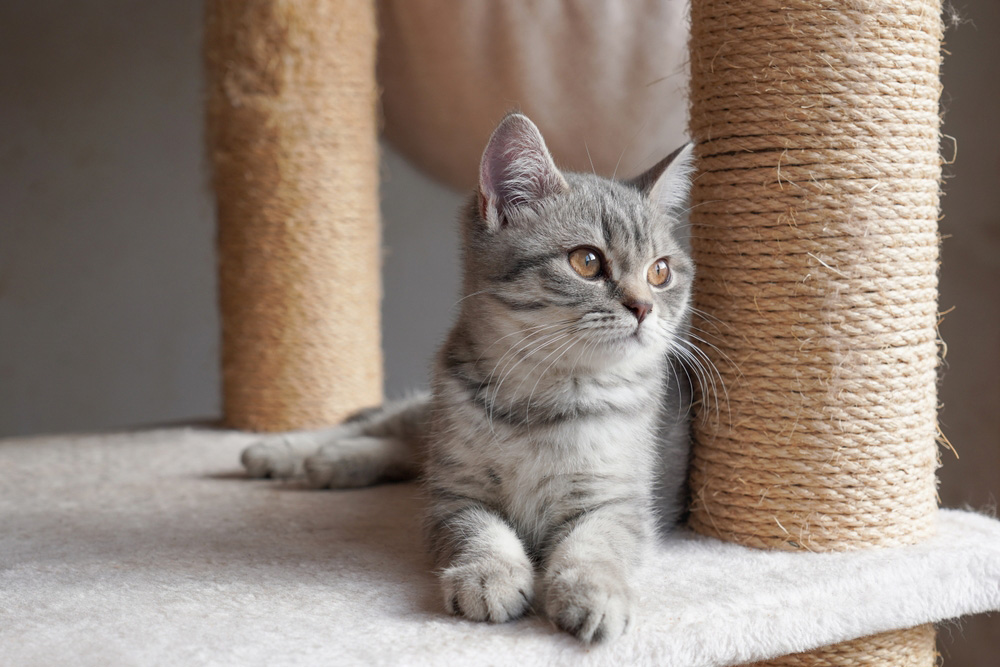
5. Inflammatory Bowel Disease
Inflammatory bowel disease (IBD) is a group of chronic gastrointestinal disorders caused by an abnormal immune response to the cat’s gastrointestinal tract’s normal flora, with clinical signs that can include chronic diarrhea, vomiting, and weight loss. It can affect any cat, and the cause is often undetermined, but food sensitivity and stress are often significant factors.
What Can You Do About It?
IBD can require exploratory surgery, medication, a change in diet, or supplementation with vitamin B12, any of which can help your pet be happier and feel more comfortable. That said, treatments will usually need to continue throughout their life.
6. Chronic Diseases
Chronic diseases like hyperthyroidism, liver disease, and kidney disease can cause signs that might include chronic diarrhea.
What Can You Do About It?
Chronic diseases can require a wide range of treatments that can include medication or even surgery. If your pet is suffering from a chronic disease, it’s best to consult with your vet to learn the best steps forward.
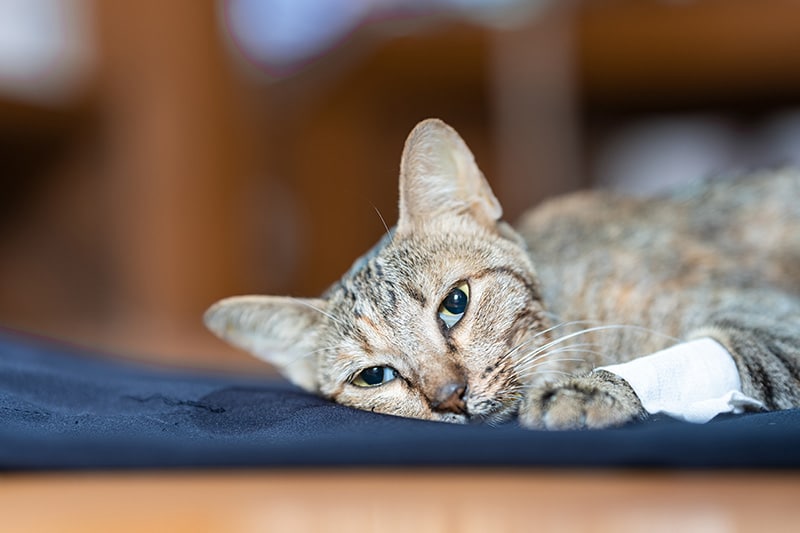
7. Dietary Sensitivities or Allergies
Cats that live outside have a dramatically different diet than the felines in our homes, and a rich, balanced diet full of nutrients might be too much for a rescue cat at first. They may also have sensitivities or allergies to an ingredient in the food that you are giving them, which can lead to frequent diarrhea.
What Can You Do About It?
Shelter cats usually adjust to regular cat food in a day or two. If they are sensitive to an ingredient, you will need to try different brands with different proteins to see if there is an improvement. Your vet can help guide you to finding the best food for your new pet.
8. Poor Absorption of Nutrients (Malabsorption)
Malabsorption is a condition where the small intestine is unable to absorb the nutrients from the food properly, causing it to pass through the body too quickly, resulting in chronic diarrhea and weight loss despite an increased appetite.
What Can You Do About It?
Treatment can include dietary changes and the addition of supplements like probiotics, prebiotics, and omega fats. The affected cat may also need supportive care and medication.
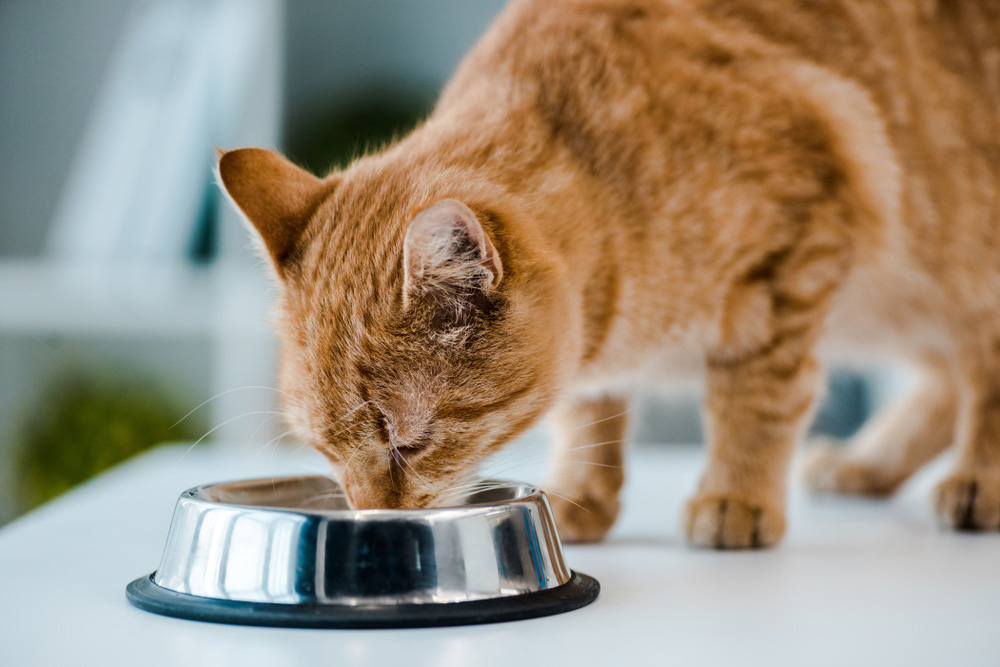
Frequently Asked Questions
How Can I Tell If My Cat’s Diarrhea Is Serious?
You should contact your vet about your cat’s diarrhea if it lasts more than 48 hours; sooner if they are also vomiting, there is blood in the stool, or they are lethargic or suffering from a loss of appetite.
What Should I Feed My Cat With Diarrhea?
Cats with mild diarrhea may benefit from a bland, easily digestible diet for a few days. If your cat’s diarrhea is quite severe, it is often sensible to keep them on a bland, sensitivity food until their signs have completely resolved before thinking about what sort of food you will feed them long term.
How Can I Prevent Diarrhea in My Cat?
You can help lower the chances that your pet will get diarrhea by feeding them a balanced diet with high quality cat food that features real meat as the first ingredient. Going to regular veterinary check-ups, keeping vaccinations and parasite control up to date, minimizing stress, and avoiding sudden dietary changes can also help.
Summary
Unfortunately, several things can cause chronic diarrhea in a rescue cat, including parasites, infections, stress, and disease. It’s best to schedule an appointment with the vet if your cat’s diarrhea lasts more than a day or two to have them looked over and get specific advice. While some issues can be serious, in many cases, the diarrhea will clear up once they’ve received deworming medication and had time to get used to good food.
Featured Image Credit: Lightspruch, Shutterstock
Contents
- The 8 Possible Causes of Chronic Diarrhea in Rescue Cats
- 1. Parasitic Infections
- 2. Tritrichomonas
- 3. Bacterial/Viral Infections
- 4. Stress
- 5. Inflammatory Bowel Disease
- 6. Chronic Diseases
- 7. Dietary Sensitivities or Allergies
- 8. Poor Absorption of Nutrients (Malabsorption)
- Frequently Asked Questions
- How Can I Tell If My Cat’s Diarrhea Is Serious?
- What Should I Feed My Cat With Diarrhea?
- How Can I Prevent Diarrhea in My Cat?
- Summary

